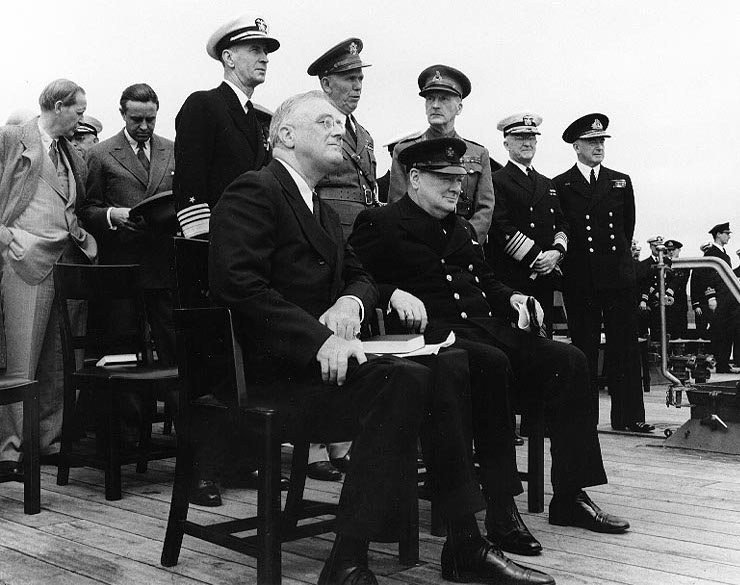Blois, France. 14 August, 2011. Seventy years ago today President Roosevelt and Prime Minister Winston Churchill met for the first time off the Canadian coast. “About time, Mr President”, said as the two men met. What emerged from that fateful meeting was the “Joint Declaration by the President and the Prime Minister”, which was soon to be termed “The Atlantic Charter”
The Charter was agreed at one of the darkest moments of a dark world in a dark and dangerous war. This single document not only created the transatlantic relationship but it quite simply galvanised the democratic saved. It words might sound quaint to a modern audience but its spirit should not. If today’s transatlantic leaders can share even a part of grand vision the two statesmen laid out then the transatlantic relationship has every chance of being as influential in our world as theirs. Therefore, at this dangerous moment, with a world in turmoil, with western societies torn from within, with a West losing its self-belief and its political ambition and with a transatlantic relationship weaker than at any time since 1941 it is worth pausing to recall the words of that simple but world-changing piece of political paper.
“The President of the United States of America and the Prime Minister, Mr. Churchill, representing His Majesty’s Government in the United Kingdom, being met together, deem it right to make known certain common principles in the national policies of their respective countries on which they base their hopes for a better future for the world.
First, their countries seek no aggrandizement, territorial or other;
Second, they desire to see no territorial changes that do not accord with the freely expressed wishes of the peoples concerned;
Third, they respect the right of all peoples to choose the form of government under which they will live; and they wish to see sovereign rights and self-government restored to those who have been forcibly deprived of them;
Fourth, they will endeavour, with due respect for their existing obligations, to further the enjoyment by all States, great or small, victor or vanquished, of access, on equal terms, to the trade and to the raw materials of the world which are needed for their economic prosperity;
Fifth, they desire to bring about the fullest collaboration between all nations in the economic field with the object of securing, for all, improved labour standards, economic advancement and social security;
Sixth, after the final destruction of the Nazi tyranny, they hope to see established a peace which will afford to all nations the means of dwelling in safety within their own boundaries, and which will afford assurance that all the men in all the lands may live out their lives in freedom from fear and want;
Seventh, such a peace should enable all men to traverse the high seas and oceans without hindrance;
Eighth, they believe that all of the nations of the world, for realistic as well as spiritual reasons must come to the abandonment of the use of force. Since no future peace can be maintained if land, sea or air armaments continue to be employed by nations which threaten, or may threaten, aggression outside of their frontiers, they believe, pending the establishment of a wider and permanent system of general security, that the disarmament of such nations is essential. They will likewise aid and encourage all other practicable measures which will lighten for peace-loving peoples the crushing burden of armaments”.
If Churchill were with us today he would doubtless be urging both American and European leaders to re-visit the grand vision of 1941. He would be impatient with the small-mindedness of today’s small leaders and would have chastised the doom-mongers and nay-sayers who say it is too late to save the world the West built.
It is not too late for America and Europe to lead this world to a safer place. It is not too late for America to regain the self-belief that made the American century possible. It is not too late for Europeans to regain the spirit that created a free and just Europe our grandfathers would scarcely have believed.
Seventy years on from the Atlantic Charter it is, as Churchill would have put it, about time!
Professor Julian Lindley-French, a member of the Atlantic Council Strategic Advisor’s Group, is Special Professor of Strategic Studies, University of Leiden, Netherlands and Associate Fellow of the Royal Institute of International Affairs, London. Photo credit: History.Navy.Mil.
Image: the%20atlantic%20charter_1.jpg
